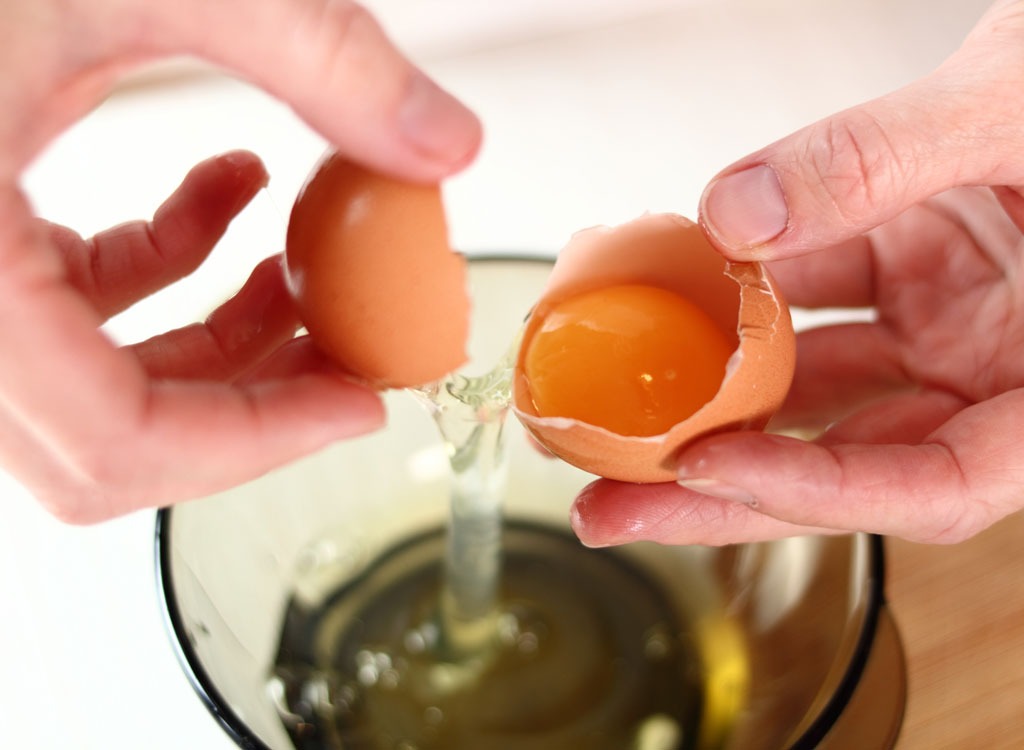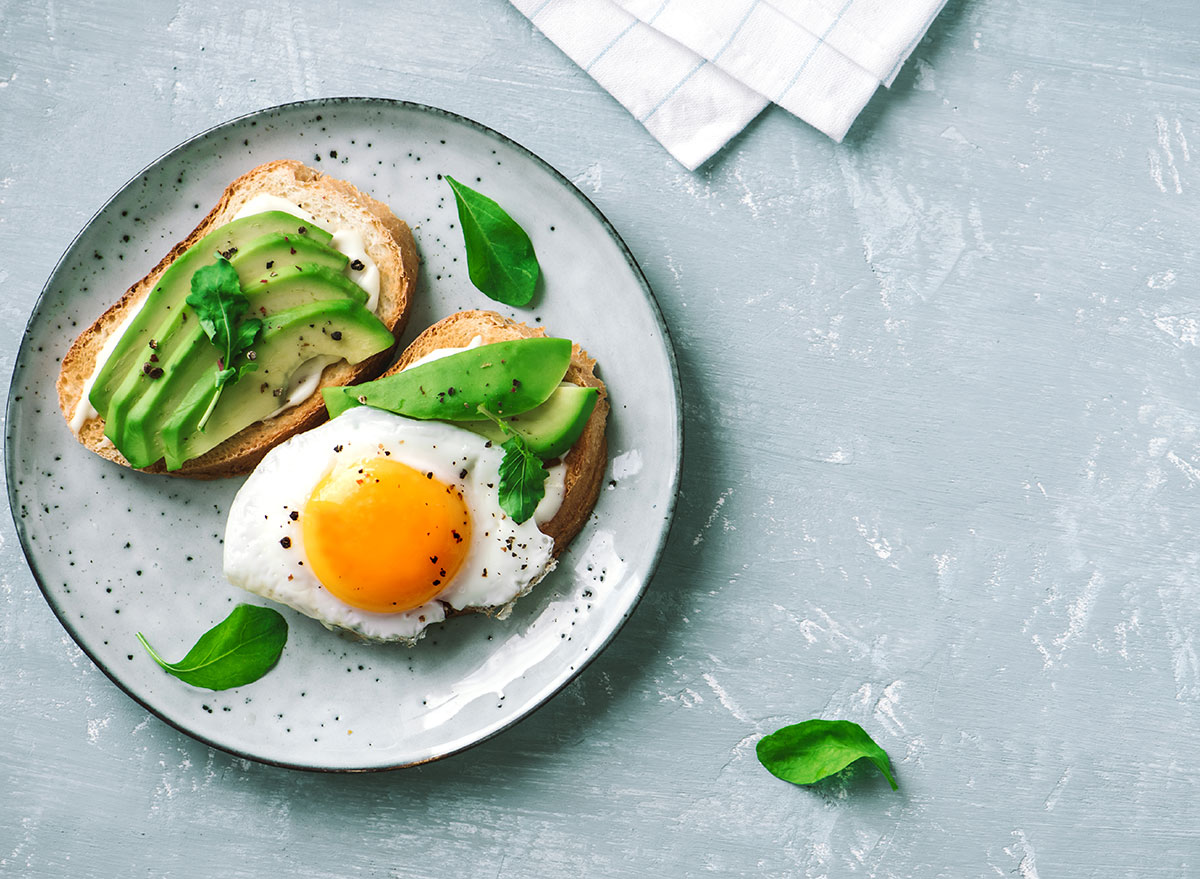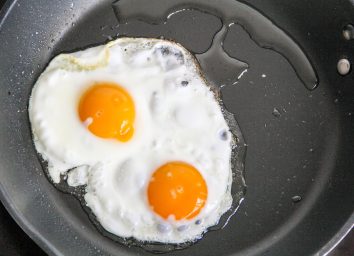One Major Side Effect of Only Eating Egg Whites, Says Science

Remember when everyone went through that phase of being hesitant to eat foods with naturally occurring fat? Eating egg whites and ditching egg yolks was just one component of food that was shamed into oblivion. Full-fat yogurt and cow's milk also got pushed to the sidelines in favor of low-fat and fat-free options.
Thankfully, society has grown since that moment, with many health experts now encouraging people to consume foods that are rich in healthy fats, as that usually also means they're rich in various nutrients. These foods include salmon, nuts, avocado, and yes, even egg yolk. All of these selections, plus many more, can also help keep you stay full and may even make you less likely to consume empty calories later in the day.
Take a serving of yogurt as an example. Which of the two do you think is the healthiest option: a 1/2 cup of full-fat plain yogurt topped with berries and nuts or have a 1/2 cup of fat-free flavored yogurt. If you answered the first one, you're right! Fat-free yogurts may not keep you full for very long and they're often laden in added sugars.
The same concept applies to eggs. One major side effect of only eating egg whites is that you miss out on healthy fats and a wealth of vitamins, including vitamins A, D, E, K, and six different B vitamins.

In addition, egg yolks are rich in choline, an essential nutrient that naturally occurs in many different foods, such as chicken, fish, Brussels sprouts, potatoes, and rice, just to name a few. However, a hard-boiled egg is the second-richest source of the nutrient, right behind beef liver. Egg yolk also offers rich sources of trace minerals, primarily iron and zinc.
Someone with high cholesterol may hesitant to eat egg yolks, as they're high in dietary cholesterol—one large egg contains 187 milligrams of cholesterol, or about 62% of the Daily Value, per the USDA. However, many studies have not been able to pinpoint a direct association between dietary cholesterol and blood cholesterol.
As the CDC points out, foods that are heavy in saturated fats, such as ice cream, red meat, and buttery pastries may be of greater concern to your blood cholesterol levels. So, have we quelled your fears around egg yolks?
It's time to bring sunny-side up eggs back into style! For more positive egg yolk coverage, check out Ways Eating Eggs Can Help You Lose Weight, Say Dietitians.








